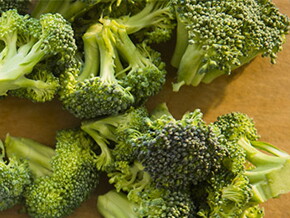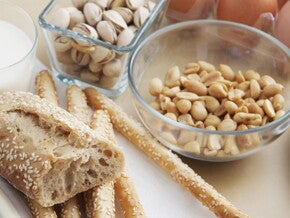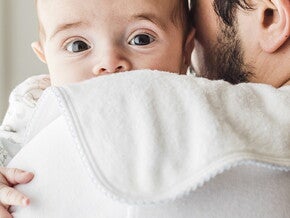
You know all the important guidelines, eating healthily, reducing quantities, doing a little sport. If you are thinking it's easier said than done then think again. After all the journey of a thousand miles begins with one step.
Taking your time
You should not embark on a drastic diet. It is likely not to provide lasting results. You should not launch headlong into daily gym sessions either. It is better to wait for your doctor’s approval before getting back into the swing of things, gently. Your body is put to the test during pregnancy and birth so give it time to get back into shape.
Then, estimate the number of kilos you need to lose but be reasonable. Ideally you should aim for the weight you were before your pregnancy, with an additional one or two kilos if you really want. Set realistic and achievable goals.
Setting a time limit is however very difficult. Some women lose their weight in a few weeks, others in over a year and longer. All women are different! Stories of celebrities who regain their figure in a flash might be deceiving, and their schedules might not be realistic if you’re caring for your newborn all on your own. Losing so much weight in so little time could also be bad for health.
You should also bear in mind that if you are breastfeeding this will naturally help you lose weight gradually so that's good news!
Eating healthily
Losing weight is impossible without a balanced diet! You should eat a varied diet but in reasonable quantities! Start with the number of meals. You should never skip meals and you should eat 3 to 4 meals per day, ideally in a calm atmosphere! This prevents hunger pangs and the risk of giving in to calorie-rich foods!
Choose lots of vegetables (steamed or boiled, with a light seasoning of olive oil, no fatty sauces) for their vitamin and fibre content. You should also make fruit a part of your diet. As for proteins, choose white meat (veal, pork tenderloin), poultry (without the skin) and fish, and lean red meat such as beef tenderloin or rump steak (it is rich in iron so you should include it in your diet.) Dairy products contain calcium and you should prefer the low fat versions (cottage cheese, natural, fruit or flavoured yoghurts) while eating a little cheese, ideally one portion 2 or 3 times a week for the time being. You should ensure you get a reasonable quantity of carbohydrates for lasting energy. While trying to lose weight you should avoid sweet and fatty foods including cured meats, ready meals and pastries etc. You should drink plenty of water, and you can drink tea and herbal teas and sugar-free soft drinks, but avoid alcohol and other drinks with a high sugar content.
If you have cravings, try an apple and a glass of sugar-free soda rather than a cake. You can of course indulge occasionally as it will help keep you motivated.
If you feel that it is too hard and you need help, you can contact a dietician who will help you adopt the right attitude, with a personalized nutritional programme.
Exercise and pampering
Combined with a healthy, balanced diet, physical activity will also help you lose weight. You should start gently by walking or swimming. Once you have completed your perineal care, you can go back to your energetic gym class or Sunday marathon training.
Try not to overdo it to begin with and don't forget to rest. Bear in mind that effective training comes more from regularity than intensity. Two sessions of 20 minutes tummy crunches per week are more effective than 2 hours intensive exercise per month!
Finally, don't forget to pamper yourself! Anti-cellulite massages at the physiotherapists, firming treatments at the beauty salon. Pleasure and well-being are compatible!


















